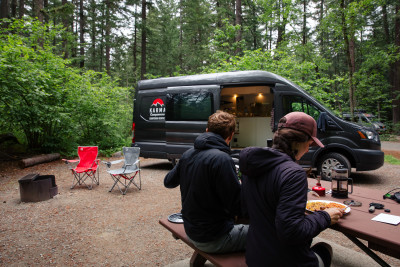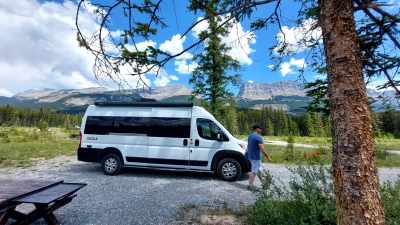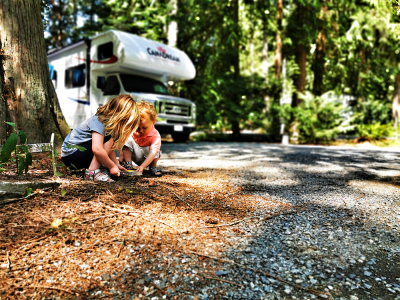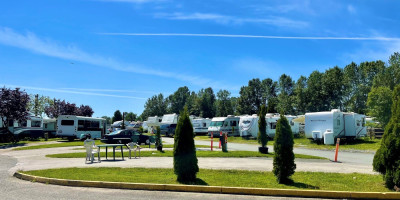Gulf of Georgia Cannery, Steveston Photo: Kim Walker
Richmond
Richmond is home to the Steveston Historic Fishing Village and Gulf of Georgia Cannery which dominate the waterfront and offer a glimpse at the rich history of the west coast fishing industry. Stroll through the village shops and visit the many historic sites in the area including the National Historic Sites, Britannia Heritage Shipyard Park and the Gulf of Georgia Cannery. The Cannery is situated atop wooden pilings over the Fraser River and is one of the few remaining 19th century salmon canneries on the BC coast. Today, fish are sold fresh from the boats daily and served up in the local restaurants and eateries.
Visit the Richmond Night Market, a fun carnival-like experience with an Asian flair with activities, games, market stalls and street food. Drop by the Olympic Oval, built for the 2010 Winter Olympics and which now houses the only Olympic museum in North America. Experience first-hand how the medalists felt. Try state-of-the-art Olympic and Paralympic sport simulators. Feel the rush of a ski jump and the speed of a bobsled. Cycle or walk the trails, go golfing, fish, take a whale watching expedition, see wildlife and more.
Location
Richmond is centrally located in Metro Vancouver in the Vancouver, Coast & Mountains region and situated where the Pacific Ocean meets the Fraser River. The area is easily accessible by air, public transit, ferry or car. By car take Hwy 1, Hwy 10 or Hwy 99 (I-95 in the United States); by air Vancouver International Airport brings you into Richmond where you can access public transport to take you to your destination.
A Step Back in Time
Richmond was incorporated as a municipality in 1879 and designated as a City in 1990.
Richmond’s islands were built up and shaped by the Fraser River and it is the river that has shaped the city’s growth. The fishery and the rich delta soil provided by the river has been the basis for the economy and industrial development. Richmond’s history is rooted in fishing, agriculture, shipping, aviation, and later in manufacturing, service and technological industries.
First Nations people were the first to come to the islands to fish and collect berries. The first European settlers to this area were farmers in the 1860s. The pattern of early settlement was oriented to the river, since it was easier to get around by boat than to cross the low-lying, often boggy interior areas of Lulu Island. The Fraser River also provided transport access to Richmond from the nearby City of New Westminster.
The abundance of the fishery attracted many people. From the early 1880s, Richmond’s fishing fleets brought their catches home to be processed in one of the numerous canneries that sprang up all along the river. This industry did more than bring fish to market: related industries such as boat-building also thrived.
The vitality of the fishing industry attracted Japanese fishermen to Richmond, adding not just to the industry but to the richness of the community. The growing cannery and boat building industries brought more migrant workers to the area including First Nations people and Chinese contract workers who originally came to British Columbia to build the railway. Steveston became the centre of the fishing industry, gaining international fame for the quality and bounty of its canned salmon. Despite the pressures of changing times, Steveston has survived as a unique, diverse community that maintains strong ties with the sea.
Richmond was, and is, the centre of aviation in British Columbia. The first flight in B.C. was made on March 25, 1910, from Minoru Racetrack. The first airport for Vancouver was on Richmond’s Lulu Island and wasn’t much more than a grass field and some small service buildings. The airport remained there until the move to Richmond’s Sea Island in 1931.
Vancouver International Airport has become an important gateway between Canada and other Pacific Rim countries.
Richmond and Nearby Accommodations
British Columbia Lodging and Campgrounds Association Members
List
Map







